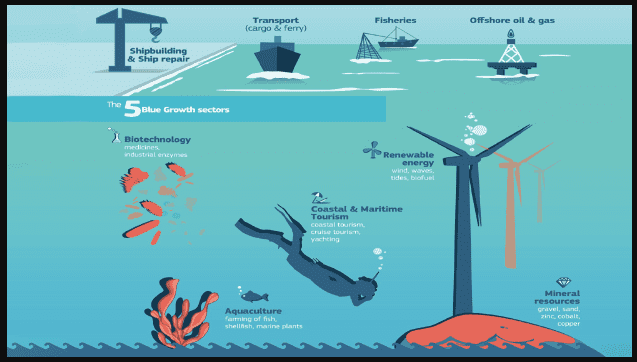
Powered by Froala Editor
Blue Economy
Powered by Froala Editor
The Oceanic Economy popularly known as blue economy has emerged as a crucial development issue for optimum use of the oceans, seas and marine resources for sustainable development. Among the sustainable development goals (SDGs), SDG-14 focuses on sustainable use of the oceans, seas and marine resources for sustainable development. Ocean assets provide food and energy which are essential ingredients of human life. By overlooking the three-fourth proportion of the surface of earth, it is tough to achieve sustainable economic development by 2030. Given this, Bangladesh has adopted steps to ensure sustainable use the oceans, seas and marine resources attaining inclusive development and goal related to SDG-14. Bangladesh has 710 km long coastline with an exclusive economic zone of 200 Nautical Miles inside the Bay of Bengal. Marine fisheries contribute 19.40 per cent of the total fish production of the country. Besides, on an average, 81.0 per cent of the international tourists visit Cox's Bazaar in Bangladesh. The ocean of Bangladesh is contributing a noteworthy role to its overall socio-economic growth through enhancing the economic activities across the country and especially to the coastal zone at southern part. The country has so far, explored only a few number of Blue Economy sectors such as fisheries and aquaculture, shipbuilding, ship breaking, salt generation and port facilities. Besides, most of these sectors are following traditional methods. Therefore, there still remains ample opportunities as well as challenges for exploring large number of blue economy sectors, safeguarding mangrove and ocean grass, addressing environmental changes and managing carbon discharge, and introducing innovative technology for further development to contribute in achieving sustainable development goals.
Powered by Froala Editor